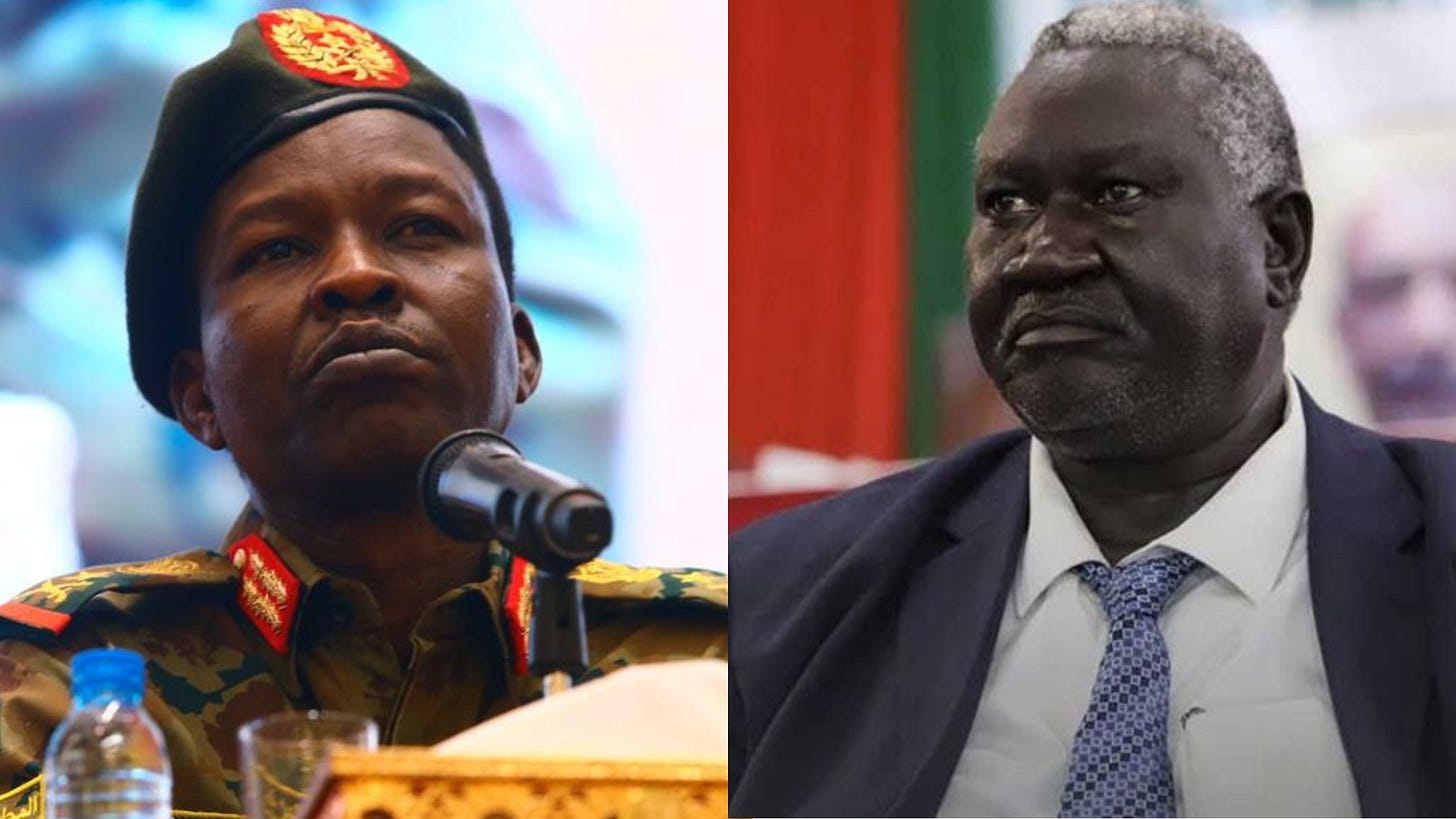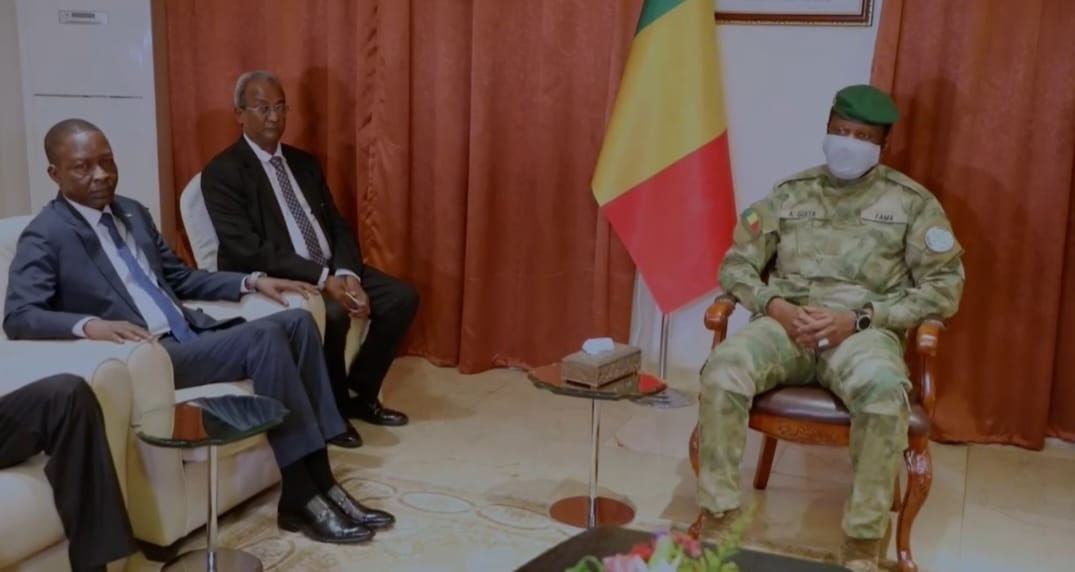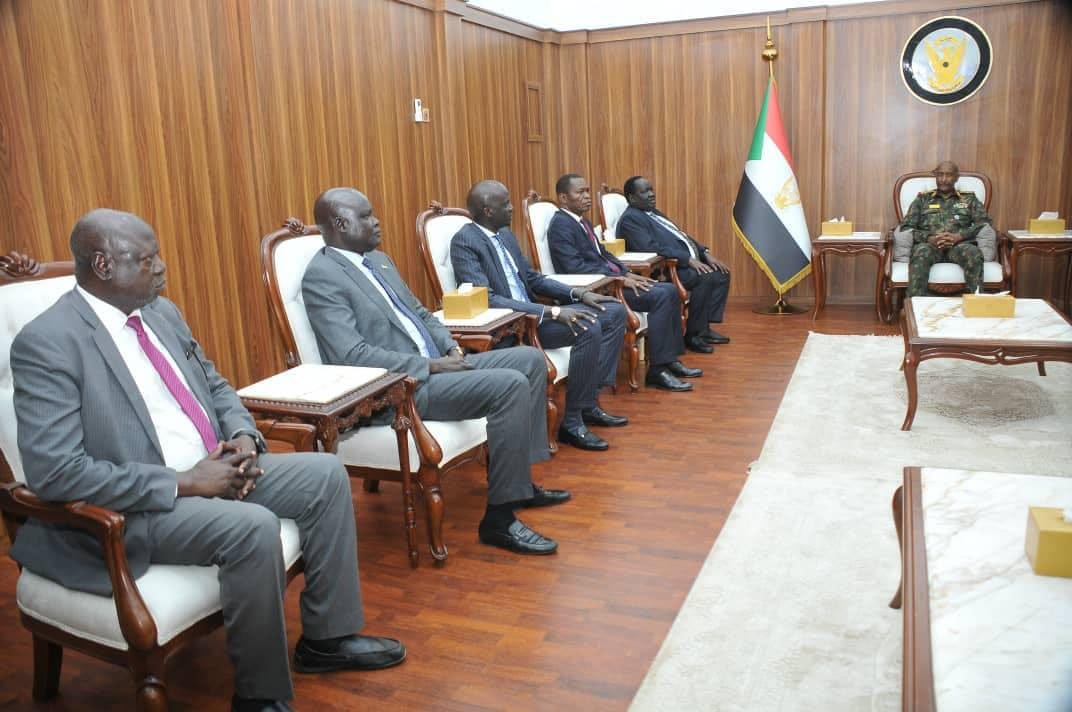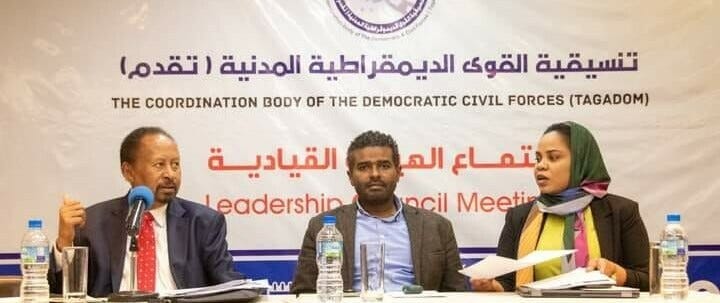High-level diplomatic activity amidst ongoing conflict
Sudan junta dispatches envoys to Russia, Niger and Mali
Sudan's military rulers sent senior officials Malik Agar and Shams al Din Kabashi to Russia, Mali, and Niger in an effort to shore up international support in its one-year-old war with the paramilitary Rapid Support Forces (RSF). Agar, the deputy chair of the military-led Transitional Sovereign Council, traveled to Russia. Kabashi, the deputy commander-in-chief of the Sudan Armed Forces (SAF), headed to Mali and Niger.
The Transitional Sovereign Council announced in a statement this week Agar's visit to Russia for the 27th International Economic Forum in St. Petersburg. During his stay lasting several days, Agar is scheduled to meet with top Russian officials, including President Vladimir Putin, and counterparts from other countries attending the forum. He was accompanied by Sudan’s ministers for finance, foreign affairs, and minerals.
According to a press statement by the Transitional Sovereignty Council, Agar will discuss with Putin “the course of bilateral relations between the two countries and ways to strengthen them, and the developments of the current war and its impact on the regional and international environment.”
Russia has emerged as a significant player in the complex web of allegiances shaping the conflict. Following the war's outbreak in April 2023, Russia’s Wagner mercenaries initially threw their weight behind the RSF in a power struggle with the SAF for control of the country. However, recent bilateral meetings between Russian and Sudanese officials suggest a potential shift in this alignment.
Russia's growing influence in Sudan has been underscored by a recent flurry of diplomatic activity. On 29 April, a high-level Russian delegation led by Deputy Foreign Minister Mikhail Bogdanov undertook a two-day visit to Sudan. The discussions reportedly focused on a potential long-term agreement – a 25-year lease for a Russian military base on the Red Sea coast.
Sudanese officials quoted by the Associated Press recently confirmed an impending deal involving the Kremlin supplying millions of dollars' worth of weapons to the ruling military junta in Port Sudan. This military aid would come in exchange for the SAF granting Russia a strategic foothold in the Red Sea region through a military base.
This development marks a potential revival of a similar arrangement proposed before the 2019 popular uprising that toppled the Islamist regime led by Omar el Bashir, highlighting Russia's continued strategic interest in the region.
Russia’s support for the Sudanese military regime comes in spite of Ukraine having previously backed the SAF, supplying them with attack drones.
Meanwhile, on his Sahel tour, Kabbashi on Wednesday arrived in Bamako, Mali’s capital, to discuss bilateral relations with the authorities there. His arrival in Bamako marks the first leg of his Mali-Niger tour. Mali and Niger, like Sudan, are led by military “transitional” governments.
Mali's current leader, Assimi Goïta, head of the Malian military, overthrew an interim president in 2021. Niger is ruled by Abdourahamane Tchiani, the former commander of the presidential guard, who came to power in July 2023 through a coup d'état. Tchiani removed and detained President Mohamed Bazoum.
In a statement following Kabashi's arrival in Bamako, the Transitional Sovereign Council said the deputy head of the ruling military was welcomed by Mali’s military leader and the two discussed bilateral relations and cooperation.
“The meeting discussed bilateral relations between the two countries and ways to develop them, aspects of joint cooperation between Sudan and the Sahel countries in the security fields, and coordination of positions with regional and international organizations. The Sovereignty Council member provided an update on the situation in Sudan and the violations of the rebel militia. The two parties exchanged information about terrorism and cross-border crimes. The two sides agreed to establish protocols for cooperation in the political, economic, cultural and other fields, in addition to signing memorandums of understanding between the Ministries of Defense and Foreign Affairs of the two countries, opening an embassy for Sudan in Mali, and resuming the work of the Malian consulate in Sudan, which was closed after the terrorist militia attacked it in Khartoum.”
Neither Mali nor Niger have sided with either faction in the Sudanese conflict, but individuals from both nations have traveled to Sudan to fight for the RSF. Ethnically, the RSF consists mostly of nomadic Arabs from Darfur, which share kinship ties with some of the Arabs tribes living in parts of Niger and Mali.
Niger's government agreed in mid-2023 to collaborate with Sudanese authorities on retrieving stolen goods, including vehicles taken during the Khartoum clashes. Mali's junta has remained silent on the Sudanese conflict.
In a related development, Russia's Foreign Minister Sergei Lavrov wrapped up a tour of African nations on Wednesday, landing in Chad's capital N'Djamena for the final leg. The multi-nation visit has been characterized by anti-Western sentiment and promises of enhanced military support for these countries who are largely ruled by military dictatorships.
Chad has faced accusations from Sudan's government of backing the paramilitary RSF. A UN Panel of Experts on Sudan report last year highlighted Chad as a key transit point for UAE and Russian weapons destined for the RSF.
During his tour, Lavrov reportedly proposed bolstering economic, trade, and particularly military ties with West African countries including Guinea, Congo, and Burkina Faso, some of which are led by military governments.
While details of discussions with Chadian officials remain undisclosed, Lavrov's visit follows a recent Russian delegation's trip to Port Sudan and a Sudanese delegation's visit to Moscow. During these talks, the possibility of Russia establishing a military base in Sudan was reportedly discussed.
South Sudanese delegation visits Port Sudan
In a separate development, South Sudan's presidential security advisor and the head of a mediation initiative for the conflict in Sudan, Tut Gatluak Manimeh, arrived in Port Sudan on Sunday for talks focused on ensuring uninterrupted flow of South Sudanese oil through Sudanese pipelines.
The delegation also includes presidential affairs minister Joseph Bakosoro and petroleum minister Puot Kang Chuol.
Landlocked South Sudan depends heavily on these pipelines for exporting its crude oil, with oil revenue accounting for roughly 98% of its national budget. However, ongoing fighting within Sudan has disrupted these crucial oil shipments. Following his arrival, Gatluak met with Sudan's military leader, Abdel Fattah al-Burhan, to discuss solutions for this critical issue.
This visit by Gatluak comes on the heels of a trip by Sudan's deputy leader, Malik Agar, to South Sudan on May 29th. During his visit, Agar met with South Sudan's President Salva Kiir Mayardit for discussions on bilateral relations, including the crucial topic of oil transportation. Sources familiar with the meeting revealed that Kiir informed Agar that South Sudan had requested protection for the oil pipelines from the RSF and requested the same from Agar.
“This visit by Agar was requested by President Salva Kiir. And it was basically for the government to inform our Sudanese brothers that we have communicated with the RSF and reminded them that they are responsible for the South Sudanese oil pipelines in the areas under their control. The same thing is true for the Sudanese government,” said one South Sudan government official on Agar’s visit to Juba.
Agar stated that his visit aimed “to see friends, brothers, and colleagues to update ourselves about common issues, and share and recollect historical experiences. But the other important part of this visit is, of course, a mission to meet President Salva Kiir Mayardit to deliver to him a message from his brother, Gen Abdel Fattah Al Burhan, president of the transitional sovereign council of Sudan. The message is all about bilateral matters and extends appreciation and compliments to President Salva and his administration for their efforts to promote peace and stability in the region.”
Taqaddum calls for end to war
Sudan's Coordination of Civil Democratic Forces (Taqaddum) concluded its founding conference in Addis Ababa last week, outlining a comprehensive plan to end the country's long-running conflict and establish a democratic government led by civilians.
The culmination of a four-day meeting held from May 27-30, Taqaddum issued a six-page document following the gathering of over 600 members from across Sudan's 18 states and 24 countries in the diaspora. Organizers hailed the conference as forming the largest civil front ever assembled to achieve peace in Sudan.
“The urgent priority is an unconditional and immediate cessation of hostilities. The war has led our country to the brink of collapse. We unequivocally condemn the gross violations committed by both the armed forces and the Rapid Support Forces (RSF),” said Bothaina Dinar, a member of Taqaddum's central leadership committee.
Dinar underscored the devastating impact of the conflict, highlighting the displacement of over 8 million people and the creation of more than 2 million refugees. She called for an international investigation into human rights abuses perpetrated by all warring parties.
Operating from outside Sudan due to security concerns, Taqaddum is led by former Prime Minister Abdalla Hamdok. The group has a strained relationship with the military-led government in Khartoum, which accuses Taqaddum of being a mouthpiece for the RSF, a paramilitary force implicated in numerous atrocities. Pro-government blocs, such as the one launched in Cairo in early May, have echoed these accusations.
SCP condemns Al-Jazira killings
In a separate development, the Sudanese Congress Party (SCP), a political group that is also a member of the Taqaddum, issued a strong condemnation of the massacre of dozens of villagers in Wad Al Nour village, Al Jazira State, by the RSF.
“We, in the Sudanese Congress Party, have mercy on the souls of the honorable civilian martyrs in the village of Wad Al-Noura, and we pray for a speedy recovery for those injured. We condemn this heinous crime committed by the Rapid Support Forces, and all their crimes in the Al-Jazira region since they took control of most of its geography. We call on the leadership of these forces to Immediately stop committing more crimes and violations against innocent, defenseless people in the Al-Jazeera region and elsewhere. The crimes and violations of the accursed April 15 war have no choice but to implement the rule of law and bring before the platforms of justice for all those who perpetrated them, and our diligent work is focused on sharpening our efforts with our allies in the Coordination of Forces. Democratic civil society in order to end and stop this war through peaceful, negotiated means.”
The SCP urged international action to hold those responsible accountable.
On its part, the Transitional Sovereign Council also condemned the massacre, calling it a “heinous act” perpetrated by the RSF against defenseless civilians. They urged the international community and human rights organizations to hold those responsible accountable for these crimes, emphasizing the principle of non-impunity – the idea that no one should be above the law.
Since seizing control of most of Al Jazira State in December 2023, the RSF have been accused of widespread atrocities. Local resistance committees have documented hundreds of killings, rapes, and looting of villages perpetrated by RSF members.
Meanwhile, the SAF have been unable to retake the state. Residents of Al Jazira criticize the military for failing to protect them, and their offensives launched since March have been unsuccessful due to difficulties confronting the RSF on the ground.







